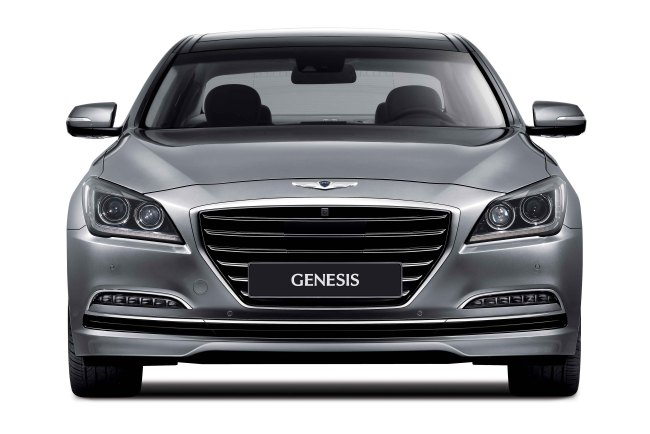Samsung
[EXCLUSIVE] Samsung in talks with Hyundai for OLED supply
[THE INVESTOR] Samsung Display, the display-making unit of Samsung Electronics, may supply its organic light-emitting diode panels for Hyundai Motor's luxury sedan Genesis, according to sources on May 23. If the deal is confirmed, it will be Hyundai’s first adoption of OLED panels for its automobiles.
“Samsung is in talks with Hyundai to supply its OLED display for Genesis’ instrument cluster and center information display,” a source familiar with the matter told The Korea Herald.
 |
The discussion, which began last year, is still ongoing, as Hyundai is not sure of the technology, which has not yet been proven in the market.
OLED panels have never been used for the mass production of automobiles because it is known to be relatively weaker in terms of durability and brightness under direct sunlight than liquid crystal display panels, experts said.
“Hyundai wants to get some samples first before signing the deal, but Samsung is reluctant to do that out of fear of technology leaks,” the source added.
Still, there is a high possibility that the two firms will sign the deal, which would benefit them both. Samsung, which recently jumped into the automobile market, does not have many references yet and Hyundai needs to upgrade its upcoming luxury sedans amid growing demand for advanced automotive electronics, industry sources said.
Samsung supplied its LCD panels for Hyundai’s audio-video navigation system until 2013, but it stopped the supply after pulling out its automobile display business, viewing it as not lucrative. That has allowed its rival firm LG Display to increase its presence in the automobile display market.
Samsung recently shared its ambition of becoming a tier 1 parts supplier of automobiles, therefore, it is tapping deeper into the industry. It acquired the US auto parts company Harman International in November and tested its self-driving vehicle early this month.
“What Samsung wants from the Hyundai deal is not just the simple supply of displays. That is just part of Samsung’s ultimate dream of building total automobile platforms including its chip, display, infotainment, battery and even operating system Tizen,” said Joo Dae-young, chief of Korea Photonics Technology Institute’s opto-mechatronics research center.
Samsung reportedly supplied its curved OLED panels for German automaker Audi’s upcoming luxury sedan A8, which was showcased during the Consumer Electronics Show 2016. When they are mass produced, it would be Samsung’s first OLED panels used for automobiles, though Audi Korea did not confirm whether the new sedan to be unveiled in July would use Samsung’s OLED panels.
The automotive display market, which includes center stack displays, instrument cluster displays and head-up displays, will reach $20 billion in 2022, an increase of $9 billion from 2017, according to new analysis from business information provider IHS Markit.
By Shin Ji-hye/The Korea Herald (shinjh@heraldcorp.com)






![[From the Scene] Gigantic Olive Young store lures young trend-setters in Seongsu](http://res.heraldm.com/phpwas/restmb_idxmake.php?idx=151&simg=/content/image/2024/11/21/20241121050065_0.jpg)

